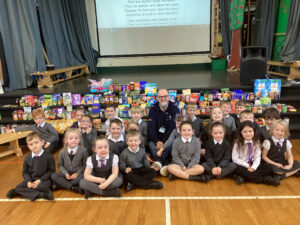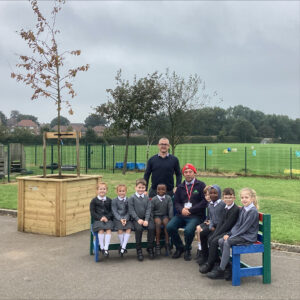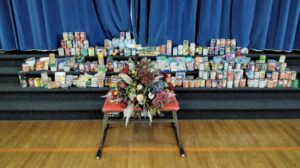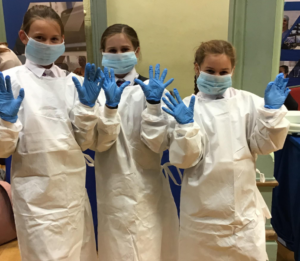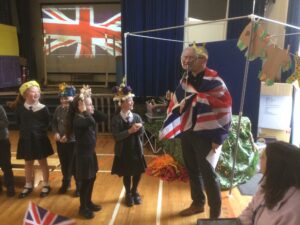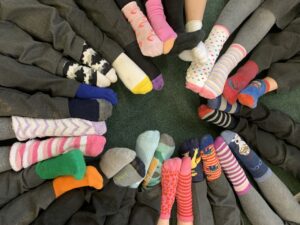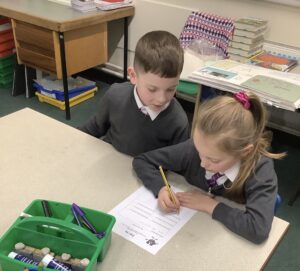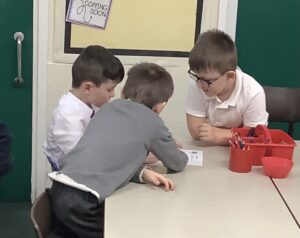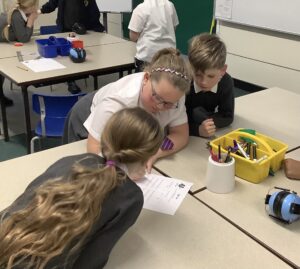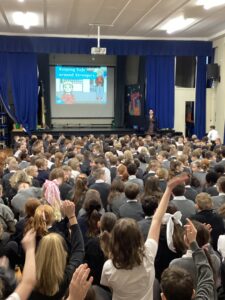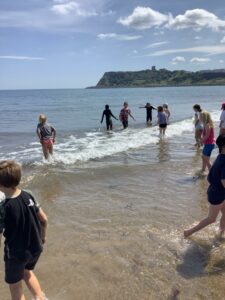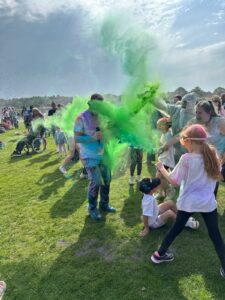Personal, Social and Health Education at Northstead Community Primary School
PSHE Leader – Mrs Rachel Ogle
Led by our compassionate and committed PSHE Subject Leader, Mrs Rachel Ogle, our Personal, Social, Health and Economic Education curriculum plays a vital role in supporting the wellbeing, confidence, and character of every child at Northstead.
Whether learning about friendships, mental health, diversity, or staying safe, pupils are encouraged to take responsibility for their actions, celebrate their individuality, and strive to be thoughtful, respectful members of our community. With a strong emphasis on inclusion and kindness, our PSHE curriculum provides every child with the opportunity to thrive—both personally and academically—on their journey to excellence.
PSHE Education at Northstead – A Guide for Parents and Carers
At Northstead Community Primary School, we understand that Personal, Social, Health and Economic (PSHE) education plays a vital role in helping children grow into healthy, happy, safe and responsible members of society.
Through our PSHE curriculum, we aim to provide children with the knowledge, skills and values they need to make safe and informed choices, form positive relationships, and navigate the challenges of growing up.
What is PSHE?
PSHE stands for Personal, Social, Health and Economic education. It helps children understand themselves and the world around them by exploring topics such as:
Friendship and teamwork / Emotional and physical well-being / Internet safety / Mental health / Puberty and growing up / Relationships and families / Equality, diversity and inclusion / Rights and responsibilities
How We Teach PSHE
We primarily use the Jigsaw PSHE programme, a well-established and engaging curriculum that provides clear progression from Early Years to Year 6. PSHE is taught weekly in class and is supported by assemblies and themed enrichment activities across the year.
To enhance the curriculum, we also include:
- Busybodies – a programme supporting Relationships and Sex Education (RSE)
- Project Evolve – for teaching internet safety and responsible digital citizenship
A Personalised Curriculum
At Northstead, we tailor our PSHE curriculum to meet the specific needs of our school community. We take into account our pupils’ lived experiences and local context to ensure learning is meaningful and relevant.
This personalised approach helps children:
- Understand the diverse nature of our society
- Recognise and celebrate differences
- Build strong moral and social understanding
Relationships and Health Education (RHE) & RSE
We follow a spiral curriculum approach to Relationships and Health Education, including age-appropriate RSE Education. This means that children revisit key concepts each year, building knowledge and confidence gradually.
Children learn:
- The correct scientific vocabulary for body parts
- How to recognise safe and unsafe behaviours
- How their bodies and feelings change as they grow
These lessons are delivered in a safe, respectful, and inclusive way, giving children the tools to protect themselves and build healthy relationships.
What Does Learning Look Like?
PSHE learning often happens through discussion, drama, storytelling, artwork, written reflections, and interactive activities. Lessons are designed to be:
Thought-provoking / Factual and age-appropriate / Engaging and inclusive
In EYFS and Key Stage 1, learning is recorded in a Class PSHE Journal. In Key Stage 2, children use their own PSHE Books, though some classes may still use a shared journal.
Building Mental Health Awareness
Children learn to:
Recognise and manage their feelings / Understand what contributes to good mental health / Identify trusted adults and ask for help when needed
We help children build self-worth and resilience, contributing positively to school life and the wider world.
Enrichment Opportunities
PSHE extends beyond the classroom. Children benefit from:
Visits and guest speakers that bring topics to life
Fundraising events that build a sense of community and empathy
Dedicated time each half-term to explore current events or respond to real-life issues affecting pupils
These experiences encourage social responsibility and give pupils practical ways to make a difference.
How Do We Assess PSHE?
PSHE is not formally tested, but teachers use ongoing assessment to monitor understanding and guide future learning.
Teachers:
Observe pupils during lessons / Give immediate verbal feedback / Adapt lessons to meet the needs of the class
By keeping learning relevant, responsive and engaging, we ensure PSHE has a lasting impact on children’s development.
If you have any questions about PSHE or the RSE curriculum, please contact your child’s class teacher or the PSHE Lead. We’re always happy to support our families in helping children thrive both in and beyond the classroom.
National Guidance for Personal, Social and Health Education
All schools must provide a curriculum that is broadly based, balanced and meets the needs of all pupils. Under section 78 of the Education Act 2002 and the Academies Act 2010, a PSHE curriculum:
Promotes the spiritual, moral, cultural, mental and physical development of pupils at the school and of society, and
Prepares pupils at the school for the opportunities, responsibilities and experiences of later life.
At Northstead Community Primary School, we teach Personal, Social, Health Education as a whole-school approach to underpin children’s development as people and because we believe that this also supports their learning capacity. The Jigsaw Programme offers us a comprehensive, carefully thought-through Scheme of Work which brings consistency and
progression to our children’s learning in this vital curriculum area.
